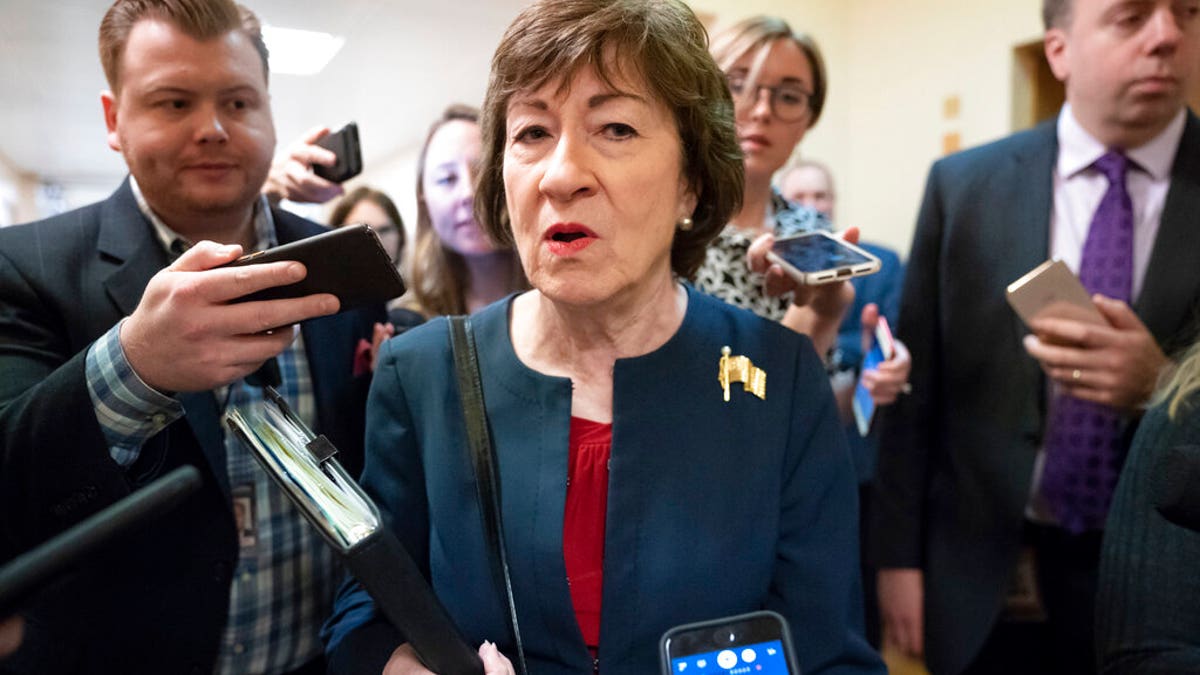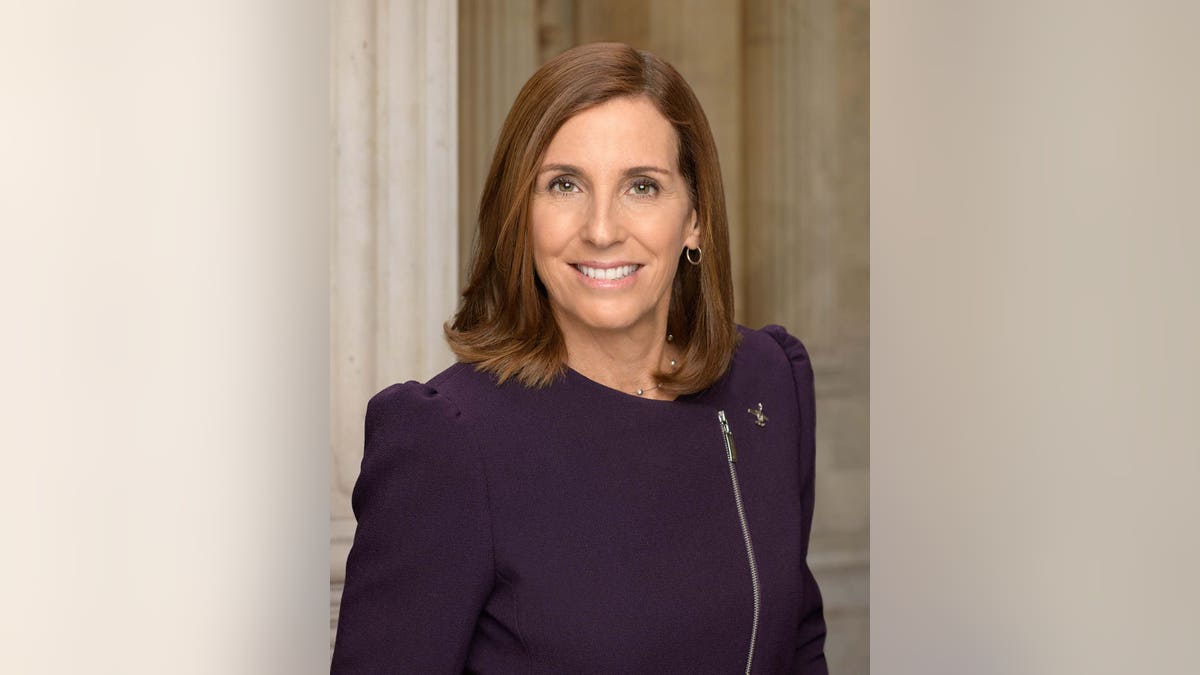Moving forward: Ginsburg death leaves vacancy ahead of election
Congressional correspondent Chad Pergram joins 'Fox News @ Night' with insight.
Senate Majority Leader Mitch McConnell's plan to vote on a Supreme Court nominee puts swing state senators in the hot seat ahead of November's election and could spur more voters to head to the polls with control of the Senate up for grabs.
Despite Democrats calling on McConnell to honor Ruth Bader Ginsburg’s last wish by waiting until after the presidential inauguration, McConnell vows President Trump's nominee will get a vote.
The timing and outcome of a vote would be fraught with political consequences in the Senate, which is currently favored to flip to Democrat control after the November election, according to The Cook Political Report.
There's just 45 days before the election and 106 days until the current Senate term runs out on Jan. 3.
Since 1975, the average time it takes between presidential nomination and Senate confirmation of a Supreme Court justice is about 70 days. So it's possible for a Senate confirmation to occur, but it likely will be during the lame-duck session after the election is settled.
AOC SAYS GINSBURG'S DEATH SHOULD 'RADICALIZE' DEMS: 'I NEED YOU TO BE READY'
"The loss of RBG is a loss of one of the great justices of all time and leaves a huge vacuum on the court," said Carl Tobias, a professor from the University of Richmond School of Law. "One big question is whether there is enough time to have a rigorous vetting process, but the lame duck helps. I think there will be a long, nasty fight, given the partisan Senate and the polarized country. There must be a full rigorous processes. The Court’s future for generations is at stake."
Several Republicans are in very competitive re-election fights, including Martha McSally in Arizona, Cory Gardner in Colorado, Susan Collins in Maine, Joni Ernst in Iowa and Thom Tillis in North Carolina. McConnell may want to protect them from having to vote on a controversial Supreme Court nominee before their own elections.

FILE - In this Nov. 6, 2019, file photo, Sen. Susan Collins, R-Maine, is surrounded by reporters as she heads to vote at the Capitol in Washington. U.S. Sen. Collins officially launched her bid for a reelection Wednesday, Dec. 18, setting up an expensive and closely watched battle for the seat the moderate Republican from Maine has held for nearly 24 years. (AP Photo/J. Scott Applewhite, File)
"I think that's a really tough vote to ask already endangered senators to take in states that are either not going to vote for Trump or trending away from Trump," said Jessica Taylor, Senate and governors editor for the Cook Report, which handicaps Senate races.
The move by McConnell to push through a Trump nominee in the waning days of the year could have major consequences, political experts warn.
He could achieve the ultimate generational judicial victory with a conservative Supreme Court justice replacing a liberal icon on the bench. But the outrage against McConnell for taking up Trump's nominee when he famously blocked then-President Obama's nominee four years ago could help flip the Senate blue and cost McConnell his job as majority leader.
"It may backfire on him. When he played his Merrick Garland card, he sort of set a precedent. To go away from that precedent I think is going to energize Democrats even more than they are now," one Senate insider told Fox News.
Many GOP senators backed McConnell's 2016 strategy to wait until the presidential election before confirming a justice, and if they are seen as flipping now, it could also create trouble for swing voters.
Sen. Lisa Murkowski, R-Alaska, who opposed Justice Brett Kavanaugh's nomination, said before Ginsburg's death she wouldn't vote to confirm a new justice this close to an election.
It's unclear if someone like Collins or Gardner would step up and say the nomination process should wait until after the election. Gardner in 2016 supported not voting to confirm Garland and now his Democratic opponent, John Hickenlooper, said he must “uphold the commitment” from four years ago and allow whoever wins the White House in November to nominate the next justice.
Given the short time frame, a vote seems most like to occur in the lame duck session in November or December.
That means there's a potential scenario that GOP senators who lost their reelection could be casting a vote for a lifelong Supreme Court nominee from Trump, who may have been defeated as well.
"It would just be even more unprecedented in what is already an unprecedented, unpredictable year," Taylor said.

Sen. Martha McSally (R-Ariz.) said she wants to vote on Trump's Supreme Court nominee, but she may not be in office then if she loses Nov. 3.
The math may still be tricky to pull off. Republicans control 53 seats in the Senate currently. McConnell can afford to lose no more than three senators on the vote, assuming Vice President Mike Pence steps in to break a tie.
GINSBURG VACANCY PUTS PRESSURE ON TRUMP-CRITIC REPUBLICANS IN SENATE
There’s a scenario where McSally, the most vulnerable Senate Republican, would not be present for a lame-duck vote on Trump's nominee.
If Democrat Mark Kelly wins in November, he could be sworn in as early as Nov. 30 because it’s a special election to fill out former Sen. John McCain’s seat, according to the Arizona Republic. That would mean McConnell could only afford to lose two Republicans.
"That would have major implications," Taylor said. "The Republicans could lose one vote at that time where every vote would be very tight."
McSally immediately said she wants to vote on Trump's nominee, signaling she's willing to embrace this issue in her reelection fight and may be looking to drive up enthusiasm among the GOP base.
Sen. Lindsey Graham, R-S.C., who is also in a competitive reelection race, would be in charge of confirmation hearings as chairman of the Senate Judiciary Committee. And vice presidential nominee Sen. Kamala Harris, D-Calif., would be among the senators grilling the nominee as a member of the committee.
Republicans traditionally have been more organized and motivated around judicial picks than Democrats. That changed somewhat after the divisive 2018 Kavanaugh nomination, and a subsequent blue wave that flipped the House blue.
CLICK HERE FOR THE FOX NEWS APP
With the death of Ginsburg, an icon on the left and champion of women's rights, Democrats may be more enthusiastic to organize and turn out to vote in November.
"The House was decided by college-educated women in the suburbs in 2018, and the Senate could very well hinge on those same voters," Taylor said. "And I think those are voters that are probably more likely to have revered Ruth Bader Ginsburg and her legacy."





